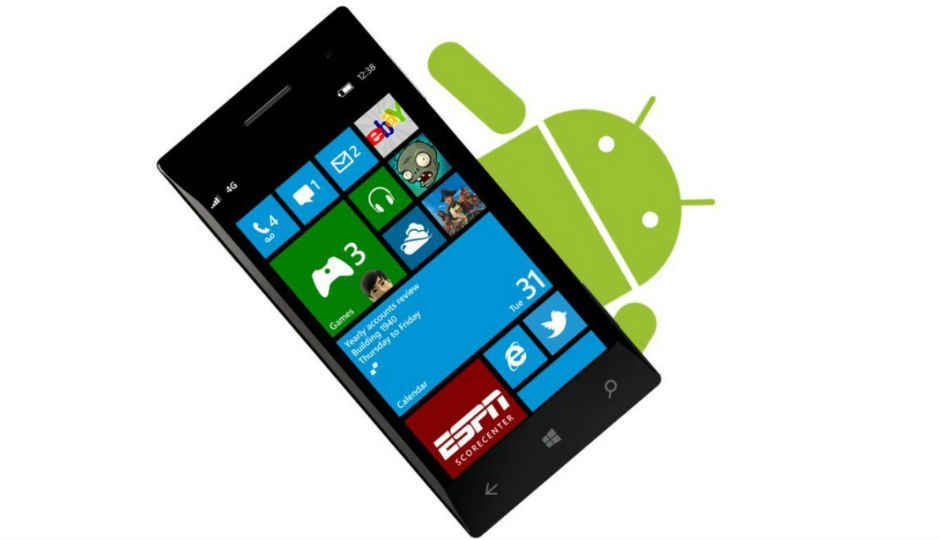Microsoft’s project for emulating Android apps may be delayed

Project Astoria is one of four software bridges that were designed to close the gap in the number of applications found on Windows and Windows Phone as compared to Android and iOS
Microsoft’s project for emulating Android apps, Project Astoria, may be delayed. Project Astoria is one four software bridges that were designed to close the ‘app gap’ on Windows and Windows phone. The other three being Project Westminster, Project Centennial, and Project Islandwood. According to Windows Central, the reason for the delay could be due to the controversial nature of the project. As the project was an emulator, the developers had little to do as the phone ran Android APK files directly. Not only did this make pirating an app easy, but it also undercut Windows developers who would have little reason to create native apps for Windows.
The other three software bridges also help close the app gap, but unlike Astoria, they do not resort to emulation. Project Westminster, Centennial, and Islandwood are used to port web, classic Win32, and iOS apps respectively. Project Islandwood for porting iOS apps requires the applications to be recompiled, but it needs developer intervention as well. Since Astoria was emulation, it is possible that it could run into legal and technical hurdles.
A spokesperson for Microsoft told Windows Central, “We're committed to offering developers many options to bring their apps to the Windows Platform, including bridges available now for Web and iOS, and soon Win32. The Astoria bridge is not ready yet, but other tools offer great options for developers. For example, the iOS bridge enables developers to write a native Windows Universal app which calls UWP APIs directly from Objective-C, and to mix and match UWP and iOS concepts such as XAML and UIKit. Developers can write apps that run on all Windows 10 devices and take advantage of native Windows features easily. We're grateful to the feedback from the development community and look forward to supporting them as they develop apps for Windows 10.”
Another way Microsoft tried to resolve the problem of lack of apps on Windows OS is by using universal apps. These are apps which run on the mobile and the desktop versions of Windows. Microsoft is also hoping that Continuum will help woo consumers. The Continuum dock can convert a Windows Phone into a Windows desktop by connecting it to a display. This system is only compatible with certain Windows 10 powered phones like the Lumia 950, 950 XL and the Acer Liquid Jade Primo.
Source: Windows Central




